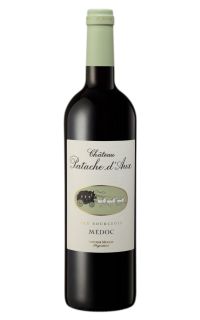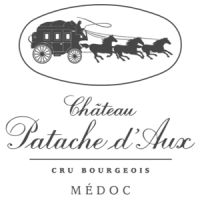Antoine Moueix (1796–1874), who arrived in Lieu-dit Manzac with his family, had no clue that his lineage would grow to become one of the largest wine dynasties. When Antonie was called for military duty, he was quite taken aback by the right bank's wine quality and immediately felt the terroir's great potential. He made the decision to create his commercial enterprise in 1902 and purchased more vineyards over the ensuing years after becoming aware of the necessity to secure supply. After the 1929 financial crisis, Antoine persuaded his brother Jean to accompany him to Libourne. Jean's son, Jean-Pierre, would go on to play a significant role in the family. He began as a farmer before purchasing Pétrus and starting the trading company.
In the vineyards of Patache d'Aux, the oldest vines are about 88 years old. Before Merlot gradually took over, Cabernet Sauvignon was indeed the predominant grape type used in this region. Today, almost 50% of the vines are Merlot. This vineyard has always preferred high-density cultivation, about 9000 per hectare, because it allows for smaller grape loads per vine, better ripening conditions, and higher phenolic component concentration. When these vines are pruned, in general, to 6 buds per vine, they are trellised, and double Guyot pruned. So now, Cabernet Sauvignon, Merlot, and Petit Verdot made up most of the grape varieties in 2019.
This distinctive winery has used the Bordeaux Wine Council's Business Management System since 2012, and it has received two accreditations: High Environmental Value Level 3 and ISO 14001. Since the 2015 vintage, Château Patache d'Aux has complied with certification standards by not using any mutagenic, carcinogenic, or reprotoxic products, and their teams are now proactively promoting the use of biocontrol agents. Additionally, their plant protection method aims for "Zero pesticide residue" in wine produced. Furthermore, they are aware that raising wine quality can be done by mechanical working of the soil. This is the reason why the amount of mechanically worked surface grows yearly. They are actively working towards their goal of producing wine that is as "clean" as possible in terms of ecology.
https://www.antoinemoueix.com
Find out more















